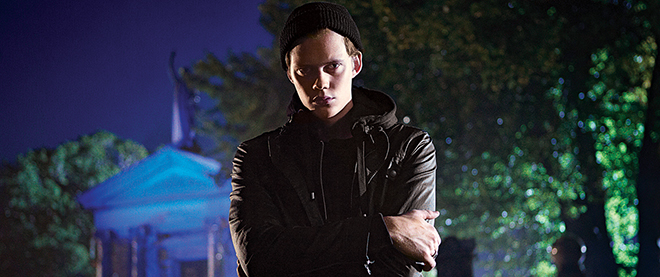Killing cable TV
With higher revenues and more viewers, Netflix believes its defeat of cable TV is finally at hand
Sophie Giraud/Netflix
Share

Netflix is like a Goliath taking on the other, older Goliaths of media. Though it started in the U.S. as a DVD rental company, it has stuck to founder Reed Hastings’ belief that streaming video is the future. Its expanded investment in that area—including original content such as the series House of Cards—has been amply rewarded. First-quarter revenues were more than $130 million higher this year over last. And when it announced its latest financial data recently, the stock price shot up 24 per cent on the day.
Emboldened by that success, Hastings has taken to declaring that Netflix is about to defeat cable TV. In a letter to investors, he proclaimed that “Internet TV will replace linear TV,” and virtually taunted HBO and other competitors with reminders of Netflix’s advantages: “They have to attract an audience for Sunday at 8 p.m., say. We can be much more flexible.” Hastings even has evidence to back up his belief that Netflix can take on HBO and win: according to the Hollywood Reporter, Netflix now has 29.2 million U.S. subscribers to HBO’s 28.7 million.
What Netflix doesn’t have yet is original content to match the cable giants it derides as outdated. Though House of Cards received some good reviews, Hastings said it had only a “gentle impact” on subscriptions. The service’s newest original, Hemlock Grove, was blasted by the Los Angeles Times as “terrible in ways that mock the meaning of the word.” Netflix is betting a lot on new episodes of Arrested Development, launching in May, but fans shouldn’t expect the epic story arcs of the original version: due in part to scheduling and budget limitations, every episode will focus primarily on only one character.
Netflix’s lack of a new, original series that can compete with HBO in scope or impact might help explain Hastings’ triumphalism: it could be about convincing producers of TV shows that Netflix is the best place to bring their work. His letter was full of barely concealed pitches to TV studios, including a reminder that the company can “prudently commit to a whole season, rather than just a pilot episode.” For a new-media giant, Hastings still depends on the whims of old-media studios.